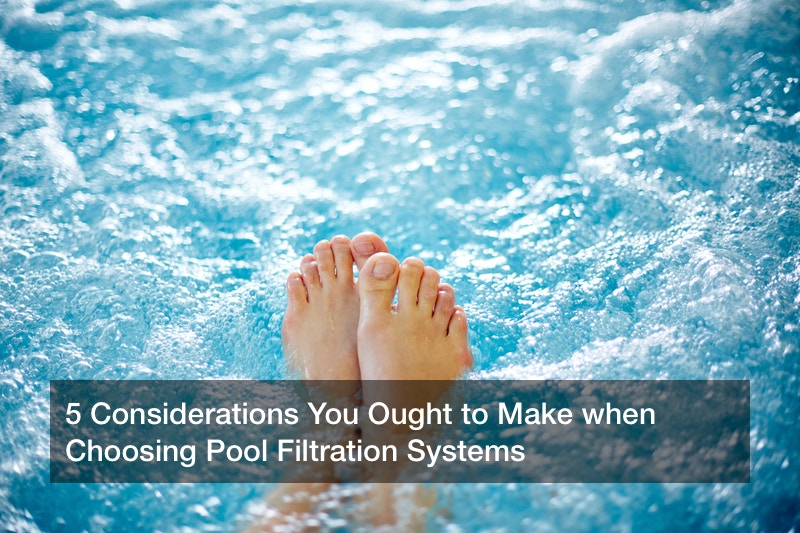
Before words like “eco-friendly” and “green” were being thrown about as recklessly as they are now, we ensured facilities and amenities actually saved water, amenities, and money, by eliminating waste and increasing their efficiency.
Energy efficiency, at the most basic level, boils down to saving, and when you’re flushing water and excess chemicals down the drain, money is flowing right along with them. This is why we must ensure that having chemical free pools isn’t an excuse for wastage.
The efficiency and environmental sustainability of pool filtration systems depend not only on their physical characteristics and the media they employ but also on how well they were designed and installed. For example, seemingly trivial details like elevation during construction can limit and diminish the system’s capacity. Here are a few considerations you should make when selecting a pool filtration system.
1. The Media
If you already know quite a bit about pool filtration systems, then you understand that water in your chlorine free pool is circulated through a particular media to remove its impurities.
In the past, most swimming pool owners believed that DE (Diatomaceous Earth) filters were the surest way of getting the minutest impurities out of your swimming water. Things have changed; now that we understand how electrostatic attraction works, people are using sand grains to filter out contaminant particles.
This is incredibly advantageous since it stops us from having to use DE filters. Diatomaceous earth can’t be recycled and requires immense amounts of milling and mining for it to be processed into a filter media. It is also toxic to human beings and animals. Sand-based pool filtration systems are, therefore, an excellent option since sand is reusable, non-toxic, and readily available.
2. The Fabrication Technique
The industry has tinkered around with different types of swimming pool filters over the years, ranging from aluminum to galvanized steel to polyester fabrications. However, with time, we’ve realized that nothing quite beats the efficiency of stainless steel.
Before buying and installing pool filtration systems, it’s important to confirm that the filters you’re purchasing are made from stainless steel. If possible, go only for the highest grades- type 316 or 304 low-carbon stainless steel. Stainless steel is painlessly recyclable. In fact, most of what we use is recycled from scrap metal. This implies that it’s not only a sustainable resource but also a means of cutting down on wastage.
3. Its Size
The proper size of a pool filtration system depends on more than just the size of the pool. Before choosing the size of your filters, you ought to keep the recommended flow rate per square foot in mind. This figure, in itself, depends on how frequently your chlorine free pools are used and how many people use them at any given time.
The general quality of water may also help you decide what filters you’ll buy for your pool.
4. Its Lining and Coating
The lining of a pool filter can be tailored to satisfy specific needs. Going for a filtration system with a thin coating may lead to a premature tank failure, while selecting something with a coating that’s more complex than necessary is simply a waste of money. It’s essential to find the correct balance.
5. The Installation Process
The efficiency and energy-friendliness of swimming pool filtration systems depend on more than their features and physical characteristics. How these systems are installed in your chemical free pools also plays quite a huge role.
Working with a qualified installation team is the best way of ensuring your pool’s filtration system is installed correctly and will function as effectively and efficiently as it should for years to come.
Swimming Pools- the Hearts of Our Homes
More and more homeowners are opening up to the idea of having a swimming pool in their backyard. Think about it- hanging out by the pool with your family, enjoying a cold dip on a hot day. Keeping fit, exercised, and healthy without having to go to the gym every morning.
A swimming pool elevates the aura of each home, and can boost its value by up to 7% should you ever decide to place it on the market. If that isn’t a deal that’s cooked itself!
